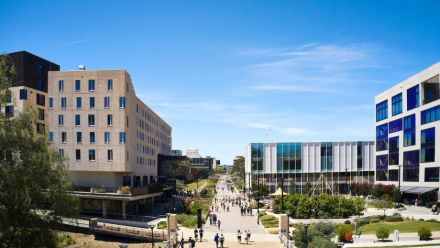Oral history research explores women's Pill perspectives
New research being undertaken at The Australian National University (ANU) aims to shift the historical narrative surrounding contraceptive science by focusing on the often-overlooked perspectives of the women who took the Pill.
The sexually and socially revolutionary 1960s and 1970s saw a transformation in attitudes towards contraception, particularly with the advent of oral contraceptives.
However, the known history of contraceptive technology doesn't factor in the people who used it, according to early career researcher Dr Natasha Szuhan, who lectures in sociology and history within the ANU College of Arts and Social Sciences (CASS).
In her latest project, An Oral History of Oral Contraceptives, Dr Szuhan, a transdisciplinary researcher whose main body of work is in the history of science, sex, gender and the medical humanities, is focusing on the women who took the Pill during the 1960s and 1970s.
"What we already know about the history of the Pill is very much situated around the efforts of scientists and social reformers," Dr Szuhan says.
"This research will focus on and elevate the voices and experiences of equally valuable but often less cognisable historical subjects - the users. The women whose voices and experiences are often forgotten in the grand narratives of history, but without whom those histories would have little meaning."
Having completed her MA (Research) and PhD in history at the University of Melbourne, Dr Szuhan has taught across deep, modern and contemporary history, history and philosophy of science, technology and medicine, sociology, cultural and gender and sexuality studies and political sciences at ANU, Shanghai University and the University of Melbourne.
She has also completed a postdoctoral research fellowship in the medical humanities with the University of Strathclyde, Glasgow, and Shanghai University.
Dr Szuhan has published two books. The first, Prahran and the Dismal Swamp: Uncovering the Natural, Settlement and Disease Ecologies of a Suburb, looks at how typhoid fever became a major threat to health and life in Prahran, Melbourne, between 1850-90. It's a social history of the intersections of the deep geological history of Melbourne, rapid urbanisation in the wake of the Gold Rush, and typhoid fever as a failure to effectively remove human effluent from densely packed Prahran in the late nineteenth century.
The most recent, The Family Planning Association and Contraceptive Science and Technology in Mid-Twentieth Century Britain, was published in 2022. This work evidenced a deep relationship between family-planning advocates, the public, scientists and regulators, that began in the 1920s as a result of efforts to standardise and regulate mechanical contraceptive technologies - spermicides, diaphragms and caps, plus condoms and sheaths; and not the 1950s, with the development of hormonal contraception, as is often assumed.
In turning her attention back to Australia and to a more recent history - the sexually and socially transformative 1960s and 1970s - Natasha aims to investigate the ways that the Australian public (women, families, pre- and post-war migrants, indigenous communities, city and country dwellers, sex workers, policy makers, scientists and physicians) made sense of, understood, were compelled and controlled by, interacted with, employed, and/or refused, and therefore have influenced and been influenced by contraceptive science and technology.
Dr Szuhan says that no other histories of the Pill have engaged with the users and sought to uncover their motivations, concerns, desires, difficulties and successes with the technology.
"Not only will this be an empirical history, but it will enrich our knowledge of the drug's impact on individual and collective ideology and identity," she says.
"It will explore the impact of the Pill on our social, political and economic structures, as well as communities and movements, and shine a light on gender, sexuality, fertility and reproduction in the age of women's liberation."


